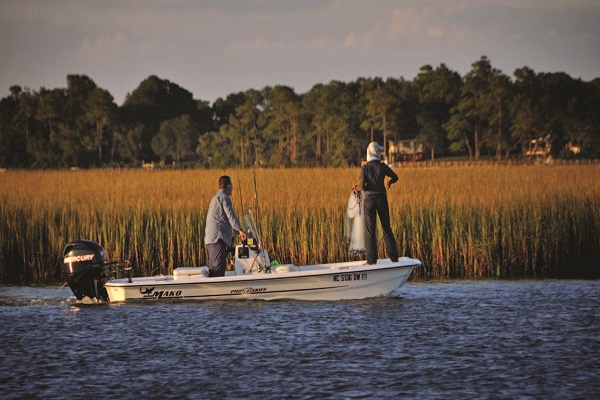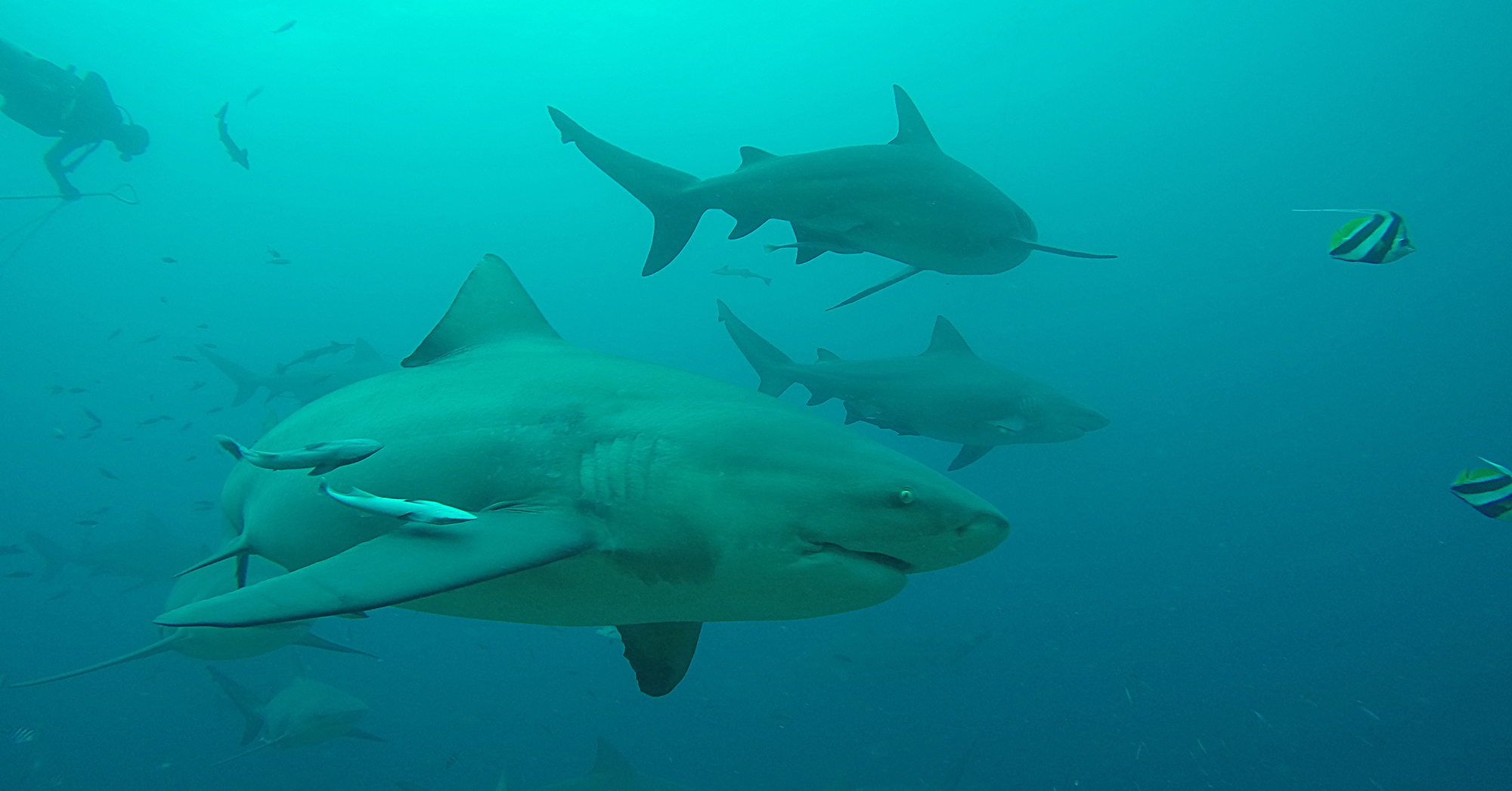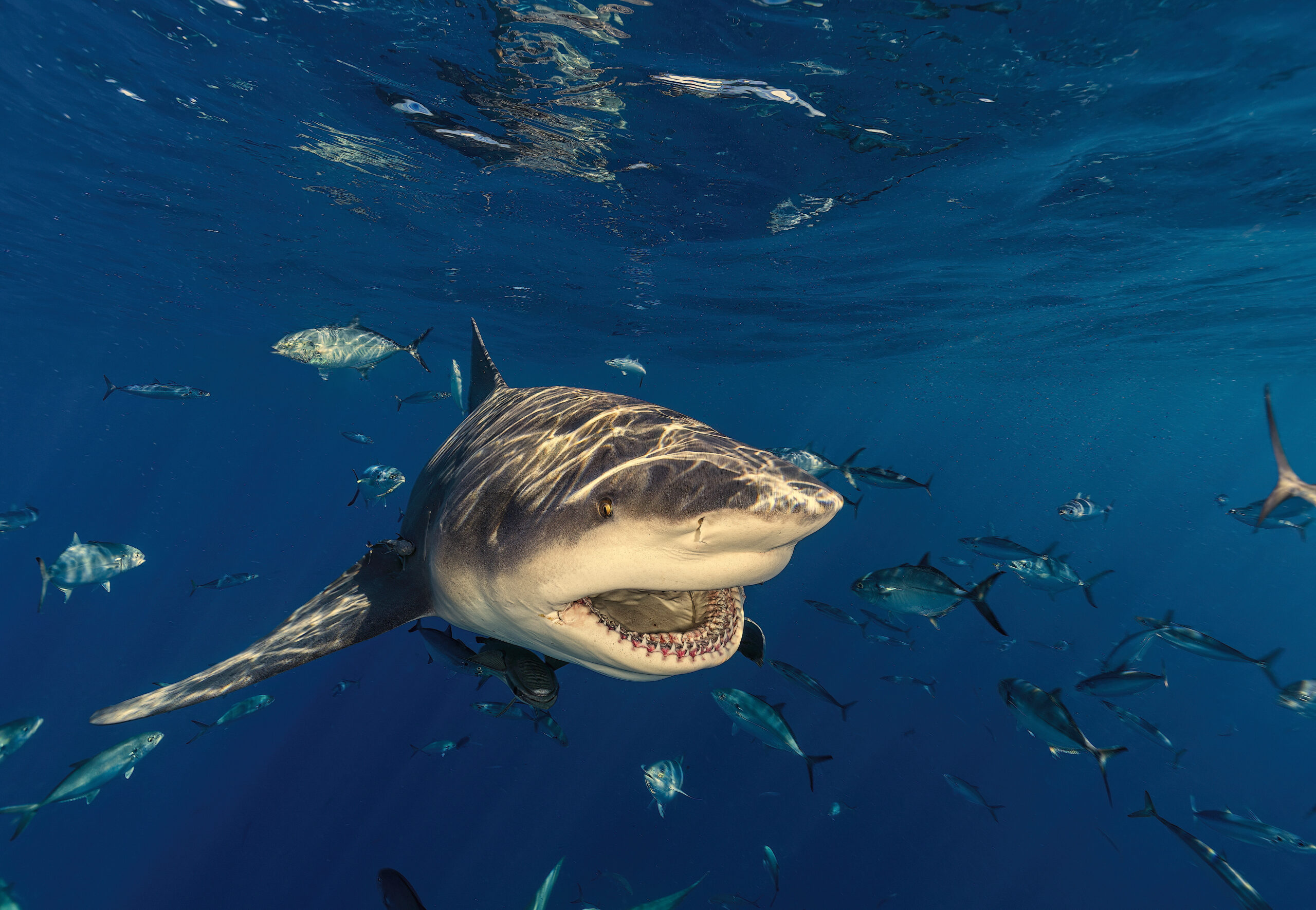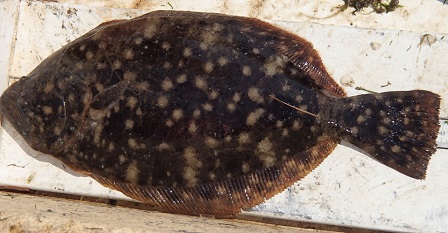CURRENTS: IN THEIR OWN WORDS: Sea Grant Fellows Share Research Snapshots

North Carolina Sea Grant supports many graduate students through fellowships that cover a wide range of research interests. The programs are committed to supporting the state’s future scientists and leaders.
“I am amazed at the caliber of graduate fellows that we draw year after year,” says John Fear, Sea Grant deputy director. “They are doing research that will improve our understanding of the state’s resources and benefit us for years to come. These fellowships definitely are a good return on investment.”
Coastwatch asked several fellows to explain what they are doing this summer. Here is their research, in their own words.
Nicholas Decker is a Research Law Fellow with the N.C. Coastal Resources Law, Planning and Policy Center. A third-year law student at the University of North Carolina School of Law, his research focuses on environmental law, specifically coastal issues in North Carolina and elsewhere in the United States.
I have primarily worked on the N.C. Coastal Resources Law, Planning and Policy Center’s ongoing project with the Town of Nags Head. Our team has analyzed the town’s existing land-use plan and compared it to other land-use plans around the country. Our ultimate goal is to use this knowledge to assist Nags Head in creating a new plan that will be effective in dealing with issues related to future climate change.
I also am working on creating a series of fact sheets that will help explain the complex issue of offshore oil and gas drilling to a wide audience. As the debate surrounding offshore drilling continues to mount, we hope these fact sheets will help quell confusion about the issue.
Kristen Downs is supported by the Richard Bland Fellowship Professional Pathways Program from the University of North Carolina at Chapel Hill’s Graduate School. She is a doctoral student in the Department of Environmental Sciences and Engineering at UNC-CH, studying the interactions between water and sanitation infrastructure and the environment.

The aim of my internship is to understand the scope of duty and community interactions required to be an effective climate change adaptation professional by observing the decision-making processes of two populations — the Town of Nags Head and North Carolina fishermen. I will be engaged in participatory processes that seek to reduce individual and community vulnerabilities to weather and climate hazards.
I am enjoying the chance to think creatively about how we might elicit qualitative information and learn directly from the fishermen we will interview to develop a decision inventory. We are adapting participatory tools, used more frequently in community development or agriculture in developing countries, to North Carolina coastal fisheries.
Specifically, we plan to use a simple seasonal calendar — imagine a large piece of paper with a January-to-December timeline — and maps of the North Carolina coast for the interviewees to document when, where and how they make decisions about fishing. We hope these tools will enable us to better connect the information shared by fishermen and, ultimately, improve our understanding of how fishing decisions are linked to weather and climate.
Liza Hoos is the 2015 North Carolina Sea Grant/N.C. Division of Marine Fisheries Management Fellow. She holds a Master of Environmental Management from Duke University, where she used geospatial analysis and species distribution modeling to address marine conservation issues.

I am working with data collected by the N.C. Division of Marine Fisheries to identify areas where significant levels of bycatch — the catch of nontarget species — are occurring in North Carolina waters.
I am mapping and analyzing bycatch of Atlantic sturgeon and sea turtles by gill net fishermen in the Albemarle and Pamlico sounds. Through an agreement with the National Marine Fisheries Service, gill net fishermen in North Carolina are limited to a certain number of interactions with Atlantic sturgeon and sea turtles each year. (See story on page 14.) If the fishery surpasses this authorized level, it may be shut down for the rest of the season.
By identifying areas and times where fishermen are likely to encounter these species, DMF may be able to implement regulations that help fishermen reduce bycatch and allow the fishery to operate more days out of the year.
Tyler O’Hara is a Research Law Fellow with the N.C. Coastal Resources Law, Planning and Policy Center. He is a third-year law student at the University of North Carolina School of Law, with an interest in environmental and coastal law.

This summer, I am working on developing the legal framework for numeric nutrient criteria, or NNC, in North Carolina’s estuaries. Using numeric values will improve water quality by providing control strategies for nutrients that affect aquatic life, drinking supplies and water-based recreation. By analyzing and comparing the criteria development plans from other states, I hope to design a more comprehensive plan and avoid any unnecessary legal challenges to our NNC development plan.
In the recent U.S. Supreme Court decision in Michigan v. EPA, the Court held that the Environmental Protection Agency unreasonably interpreted the portion of the Clean Air Act that requires the agency to regulate power plants whenever “appropriate and necessary” when the agency refused to consider cost in making its decision.
While the Supreme Court’s decision was fairly narrow, the similarities in language between the Clean Air Act and the Clean Water Act make it important to track how the Court is treating legal issues in both statutes. As a result of this decision, it is important that I stress the inclusion of a cost analysis when implementing any numeric nutrient criteria.
Carter Smith is one of two 2015 Coastal Policy Fellows with N.C. Coastal Resources Law, Planning and Policy Center. She is a doctoral student in marine sciences at the University of North Carolina at Chapel Hill’s Institute of Marine Sciences.

My work this summer focuses on hurricane resiliency. I am comparing the coastal protection that is offered by marsh sills — both rock and oyster-bag sills— as well as bulkheads and natural marsh.
This summer, along with staff and interns from both the University of North Carolina at Chapel Hill’s Institute of Marine Sciences and N.C. Coastal Reserve and National Estuarine Research Reserve Program, I surveyed more than 30 coastal sites from Oak Island to Hatteras. We visually assessed more than 150 km of estuarine shoreline for signs of damage and/or erosion.
Having the chance to meet countless waterfront property owners throughout the state has offered me a unique opportunity to hear about things from their perspectives and integrate the on-the-ground knowledge that they have from watching their property change day to day.
I try to approach my work from a highly interdisciplinary perspective and always think about how I’m going to explain the results of the research to nonacademics.
Seth Theuerkauf is one of two 2015 North Carolina Sea Grant/N.C. Coastal Reserve and National Estuarine Research Reserve Program fellows. He is a doctoral candidate in the Marine Ecology and Conservation Laboratory at North Carolina State University’s Center for Marine Sciences and Technology.

My research as a Coastal Reserve Fellow focuses on quantifying the impact of Phragmites australis, a widespread invasive marsh grass, on the ecosystem services provided by a marsh. My goal is to inform an ecosystem services-based approach to Phragmites management. Specifically, I am assessing the effect of Phragmites on marsh ecosystem service provision by quantifying marsh erosion, carbon sequestration and plant diversity at Currituck Banks and Kitty Hawk Woods reserves.
I am very excited about the diverse and interinstitutional group of “actors” that have come together to make this happen! The team consists of Ethan Theuerkauf from the University of North Carolina at Chapel Hill’s Institute of Marine Sciences; Katelyn Theuerkauf from North Carolina State University’s Center for Marine Sciences and Technology, or CMAST; Brandon Puckett, the Reserve research director; Scott Crocker, the Reserve’s northern sites manager; Reserve summer intern Samantha Godwin; and
Athena Edwards, a student from West Carteret High School who is a CMAST Sea Wolf leader and summer research aide funded through the joint fellowship.
Our diverse team has assisted with methods design and field sampling. Recently, we deployed marsh erosion monitoring stakes at Phragmites-only, native grass-only and mixed grass locations within the Reserve sites. We plan to identify any differences in marsh erosion rates depending on the vegetation that is present.
Go to ncseagrant.ncsu.edu/funding-opps/fellowships for more on fellowships offered by North Carolina Sea Grant.
This article was published in the Autumn 2015 issue of Coastwatch.
For contact information and reprint requests, visit ncseagrant.ncsu.edu/coastwatch/contact/.
- Categories:


